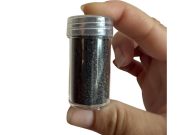The right stocks can make you rich and change your life.
The wrong stocks, though… They can do a whole lot more than “underperform.” If only! They can eviscerate your wealth, bleeding out your hard-won profits.
They’re pure portfolio poison.
Surprisingly, not many investors want to talk about this. You certainly don’t hear about the danger in the mainstream media – until it’s too late.
That’s not to suggest they’re obscure companies – some of the “toxic stocks” I’m going to name for you are, in fact, regularly in the headlines for other reasons, often in glowing terms.
I’m going to run down the list and give you the chance to learn the names of three companies I think everyone should own instead.
But first, if you own any or all of these “toxic stocks,” sell them today…
Beyond Meat (BYND)
One of the standout concerns for Beyond Meat is its declining revenue growth. In Q2 2023, the company reported a worrying 31% YoY decrease in net revenues, coupled with a 23.9% YoY drop in product volume sold. This decline raises questions about Beyond Meat’s ability to sustain consumer interest and market share. Various factors contributed to this decline, including weakened demand, heightened competition, and the natural ebb and flow of sales compared to the previous year.
Furthermore, Beyond Meat’s gross margin is currently a significant area of concern. The company’s reported gross margin for the same quarter was a mere 2.2%. This low margin indicates that Beyond Meat is grappling with substantial cost challenges. While there was a slight improvement compared to the previous year, this margin needs a boost for sustainable profitability.
It’s worth noting that Beyond Meat has reported four consecutive quarters of reducing inventory, a positive sign of efficient operations. However, this consistent reduction might also point to challenges in predicting demand and managing product shelf life. In a highly competitive landscape where many players vie for shelf space, pricing power, and consumer attention, maintaining market share and premium pricing becomes increasingly challenging.
Finally, Beyond Meat’s strategy heavily relies on partnerships with fast-food giants like McDonald’s (MCD). While partnerships can be fruitful, overreliance on them limits the company’s control over its destiny and exposes it to potential vulnerabilities if partnerships fail to perform as expected.
[stock_market_widget type=”accordion” template=”extended” color=”#5679FF” assets=”BYND” start_expanded=”true” api=”yf”]
Foot Locker (FL)
The past year hasn’t been kind to Foot Locker, as its stock price has taken a 40% hit. Investors have been selling off shares following disappointing earnings reports. In the latest Q2 report, the company recorded a 10% decrease in total sales compared to the previous year and reported a net loss of $5 million, a significant contrast from the $94 million net income in Q2 2022. Nearly all of their brands saw a decline in sales except for their WSS segment.
To address its financial challenges, Foot Locker temporarily suspended dividend payments to investors, despite initially approving a payout of $.40 per share for the second quarter. This decision is part of Foot Locker’s strategy to strengthen its financial position for the future. The company has also adjusted its total sales guidance for the remainder of the year.
[stock_market_widget type=”accordion” template=”extended” color=”#5679FF” assets=”FL” start_expanded=”true” api=”yf”]
Impinj (PI)
Impinj is a chip manufacturer specializing in innovative radio frequency identification (RFID) solutions. Their mission is to connect products like shipments, vehicles, and luggage to the internet wirelessly using RFID technology.
However, Impinj has faced challenges in the past year, resulting in a 45% drop in its stock price. This decline was triggered by a disappointing Q1 2023 outlook that led investors to sell off their shares, causing a 39% immediate drop in the stock price.
In its most recent earnings report from July 26, Impinj did show promising signs, including a 44% increase in revenue and a 40% reduction in net loss compared to the previous year. However, these positive results need to offset the concerns arising from the company’s uncertain future outlook. Impinj may face challenges.
[stock_market_widget type=”accordion” template=”extended” color=”#5679FF” assets=”PI” start_expanded=”true” api=”yf”]












